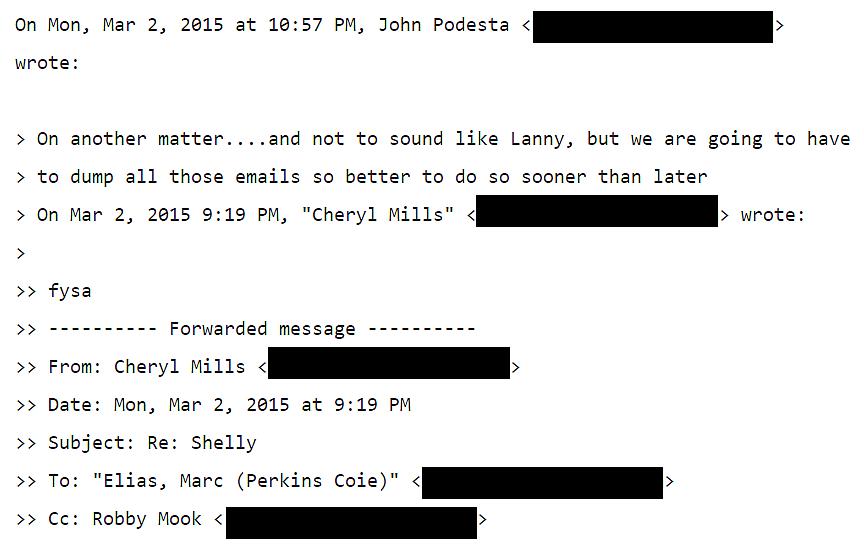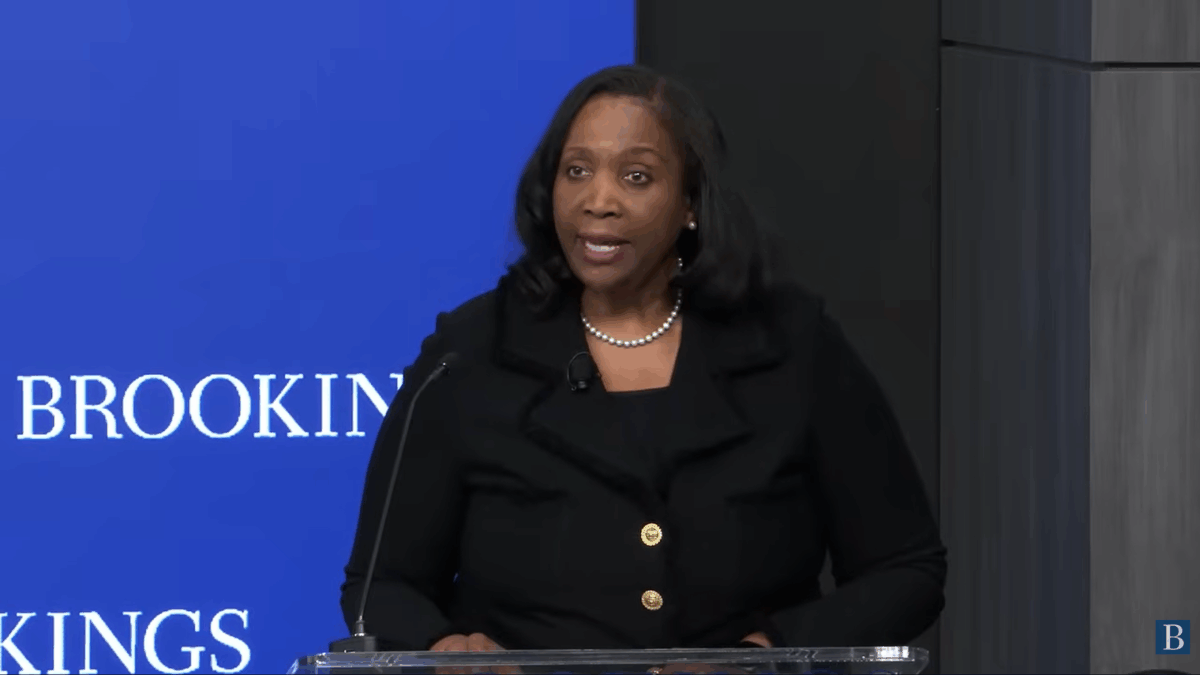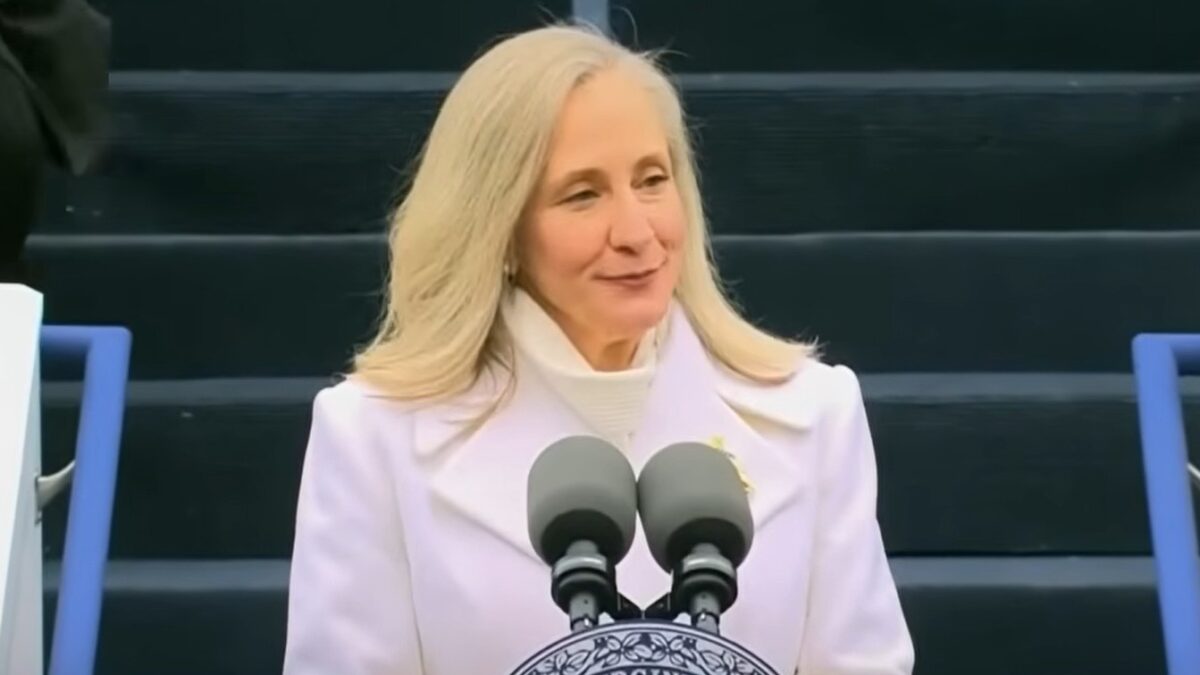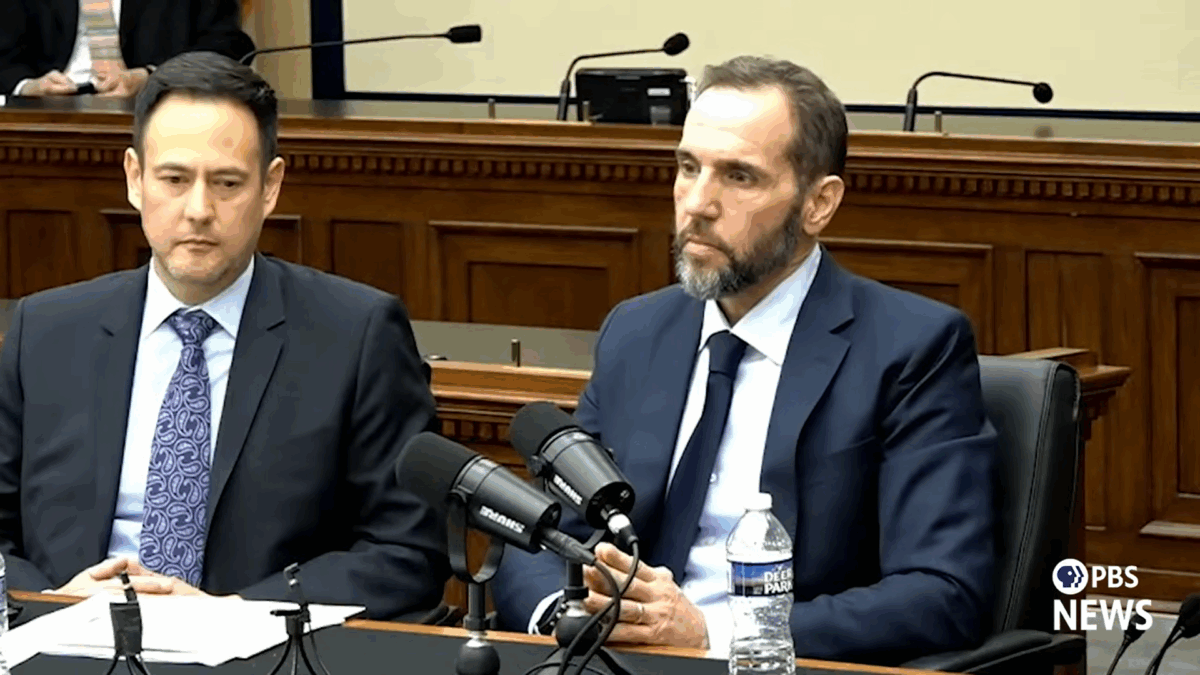On the same day the New York Times published a blockbuster report detailing Hillary Clinton’s use of a secret e-mail server, Clinton’s campaign chairman told Clinton’s chief of staff that “we are going to have to dump all those e-mails so better to do sooner than later.”
The e-mail from John Podesta to Cheryl Mills, sent on March 2, 2015, was released on Tuesday by Wikileaks.
“On another matter…and not to sound like Lanny [Davis],” Podesta wrote to Mills, “but we are going to have to dump all those e-mails so better to do sooner than later.”
Podesta’s recommendation was sent at 10:57 p.m. on the same day the New York Times revealed that Clinton had exclusively used a secret, private e-mail server her entire tenure as Secretary of State:
WASHINGTON — Hillary Rodham Clinton exclusively used a personal email account to conduct government business as secretary of state, State Department officials said, and may have violated federal requirements that officials’ correspondence be retained as part of the agency’s record.
Mrs. Clinton did not have a government email address during her four-year tenure at the State Department. Her aides took no actions to have her personal emails preserved on department servers at the time, as required by the Federal Records Act.
Although it is unclear whether Podesta was specifically referring to the tens of thousands of e-mails that Clinton and her staff sent to each other while Clinton served as Secretary of State, the timing of the e-mail — immediately following the publication of the New York Times report which detailed for the first time Clinton’s exclusive use of a secret, off-books e-mail server — suggests that he was indeed referring to the e-mails from Clinton and her staff from 2009 through 2013.

Five days after Podesta told Mills, who served as Clinton’s chief of staff at the State Department and who currently serves as an adviser and attorney to the Democratic presidential candidate, that “we are going to have to dump all those e-mails,” Mills e-mailed Podesta that “we need to clean this up.”
Mills’ panicked e-mail to Podesta came after President Barack Obama publicly claimed that he knew nothing about Clinton’s private e-mail setup until he read about it on the news.
“[Obama] has e-mails from [Clinton],” Mills wrote. “[T]hey do not say state.gov.”
Neither Podesta nor Mills has authenticated the e-mail released by Wikileaks, nor has either denied the record’s authenticity. It is also possible that Podesta’s “dump those emails” recommendation could be a reference to an entirely different batch of e-mails, or it could be a recommendation that Clinton’s inner circle should quickly turn all of the records over to the relevant federal authorities. On March 4, 2015, just two days after Podesta’s e-mail, a congressional committee officially subpoenaed Clinton’s e-mails.
Clinton’s presidential campaign was rocked by news last Friday that the Federal Bureau of Investigation had reopened its criminal investigation of the Democratic nominee’s e-mail setup at the State Department. Recently released national polls show a recent tightening of the race between Clinton and Republican nominee Donald Trump, while state polls suggest that Clinton still has a healthy lead in the race for 270 electoral votes.








